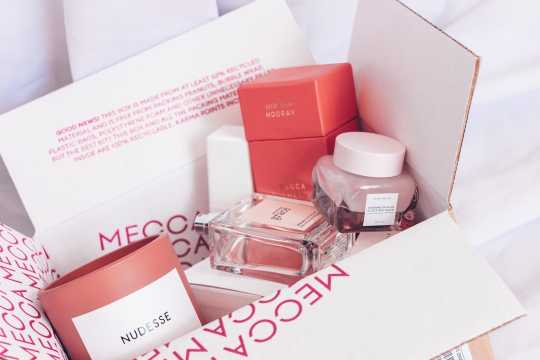Acne-prone skin can be a real struggle for many people. Dealing with constant breakouts, oily skin, and enlarged pores can not only be frustrating but can also take a toll on your self-esteem. However, having a good skincare routine specifically tailored for acne-prone skin can make a world of difference. In this blog post, we will discuss the best skincare routine for acne-prone skin that will help you achieve clear, healthy-looking skin.
1. Cleansing
The first step in any skincare routine, especially for acne-prone skin, is cleansing. It is crucial to cleanse your skin twice a day – in the morning and at night. When choosing a cleanser for acne-prone skin, opt for one that is gentle and non-comedogenic. Look for ingredients like salicylic acid, benzoyl peroxide, or tea tree oil, as they can help to unclog pores and reduce acne-causing bacteria. Avoid harsh cleansers that can strip the skin of its natural oils, as this can lead to overproduction of sebum and more breakouts.
2. Exfoliating
Exfoliation is an essential step in any skincare routine, especially for acne-prone skin. Exfoliating helps to remove dead skin cells, unclog pores, and prevent breakouts. However, it is important to be gentle with exfoliation, as harsh exfoliants can irritate the skin and worsen acne. Opt for a gentle exfoliant with ingredients like salicylic acid or glycolic acid, and exfoliate 2-3 times a week. Over-exfoliation can damage the skin barrier and lead to more breakouts, so it is important to find a balance.
3. Toning
Toning is an often overlooked step in skincare routines, but it can make a big difference for acne-prone skin. Toners help to balance the skin’s pH levels, tighten pores, and remove any leftover impurities after cleansing. Look for a toner that is alcohol-free and contains soothing ingredients like witch hazel, chamomile, or aloe vera. Toners can also help to prepare the skin for better absorption of serums and moisturizers.
4. Treating
Treating acne is an important step in any skincare routine for acne-prone skin. There are many different acne treatments available, such as spot treatments, serums, and creams. Look for products that contain acne-fighting ingredients like salicylic acid, benzoyl peroxide, or retinoids. These ingredients help to unclog pores, reduce inflammation, and prevent future breakouts. However, it is important to introduce these treatments slowly and patch-test them first, as they can be irritating to some skin types.
5. Moisturizing
Moisturizing is a crucial step in any skincare routine, even for acne-prone skin. Many people with acne tend to skip moisturizer out of fear that it will make their skin more oily and lead to breakouts. However, skipping moisturizer can actually worsen acne, as dehydrated skin can lead to overproduction of sebum. Look for a lightweight, oil-free moisturizer that is non-comedogenic and won’t clog pores. Hyaluronic acid, glycerin, or ceramides are great ingredients to look for in a moisturizer for acne-prone skin.
6. Sun protection
Sun protection is non-negotiable, regardless of your skin type. Sun exposure can lead to premature aging, hyperpigmentation, and worsen acne. Look for a broad-spectrum sunscreen with at least SPF 30 and apply it every day, even on cloudy days. Opt for a sunscreen that is oil-free and non-comedogenic to prevent clogged pores. Additionally, wearing a hat and sunglasses can provide extra protection from the sun’s harmful rays.
7. Masking
Using a face mask 1-2 times a week can help to deep clean pores, reduce inflammation, and control oil production. Look for a mask that contains ingredients like clay, charcoal, or sulfur, as they can help to absorb excess oil and unclog pores. However, it is important not to overdo it with masking, as it can strip the skin of its natural oils and lead to more breakouts. Choose a mask that is suited for your skin type and concerns, and follow the instructions for use.
In addition to following a skincare routine tailored for acne-prone skin, there are some other tips to keep in mind:
– Avoid touching your face unnecessarily, as this can transfer bacteria and oils onto the skin and lead to breakouts.
– Wash your pillowcases, towels, and makeup brushes regularly to prevent bacteria buildup.
– Eat a balanced diet rich in fruits, vegetables, and lean proteins, and avoid processed foods and dairy, which can trigger acne.
– Stay hydrated by drinking plenty of water, as dehydration can lead to dull, dehydrated skin and more breakouts.
In conclusion, having a skincare routine tailored for acne-prone skin can make a world of difference in achieving clear, healthy-looking skin. By following the steps outlined in this blog post and incorporating them into your daily routine, you can effectively manage acne and prevent future breakouts. Remember that consistency is key when it comes to skincare, so be patient and stick to your routine to see the best results. If you are struggling with persistent acne, consider consulting a dermatologist for personalized advice and treatment options. With the right skincare routine and lifestyle habits, you can achieve the clear, radiant skin you’ve always dreamed of.

